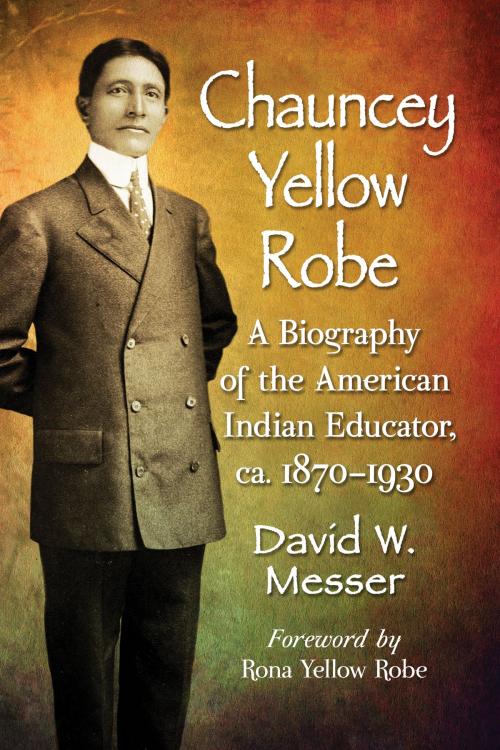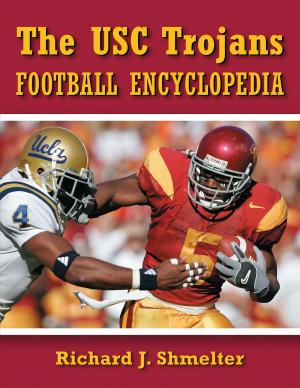| Author: | David W. Messer | ISBN: | 9781476633046 |
| Publisher: | McFarland & Company, Inc., Publishers | Publication: | October 22, 2018 |
| Imprint: | Language: | English |
| Author: | David W. Messer |
| ISBN: | 9781476633046 |
| Publisher: | McFarland & Company, Inc., Publishers |
| Publication: | October 22, 2018 |
| Imprint: | |
| Language: | English |
In 1883, 12-year old Canowicakte boarded a train on the Rosebud Indian Reservation, beginning a journey his friends said would end at the edge of the world. Raised as a traditional Lakota, he found Carlisle Indian School, with its well-documented horrors, was the end of the world as he knew it. Renamed Chauncey Yellow Robe, he flourished at Carlisle, developed a lifelong friendship with founder Richard Pratt, and went on to work at Indian boarding schools for most of his professional life. Despite his acceptance of Indian assimilation, he was adamant that Indians should maintain their identity and was an outspoken critic of their demeaning portrayal in popular Wild West shows. He was the star and technical director of The Silent Enemy (1930), one of the first accurate depictions of Indians on film. His life embodied a cultural conflict that still persists in American society.
In 1883, 12-year old Canowicakte boarded a train on the Rosebud Indian Reservation, beginning a journey his friends said would end at the edge of the world. Raised as a traditional Lakota, he found Carlisle Indian School, with its well-documented horrors, was the end of the world as he knew it. Renamed Chauncey Yellow Robe, he flourished at Carlisle, developed a lifelong friendship with founder Richard Pratt, and went on to work at Indian boarding schools for most of his professional life. Despite his acceptance of Indian assimilation, he was adamant that Indians should maintain their identity and was an outspoken critic of their demeaning portrayal in popular Wild West shows. He was the star and technical director of The Silent Enemy (1930), one of the first accurate depictions of Indians on film. His life embodied a cultural conflict that still persists in American society.















